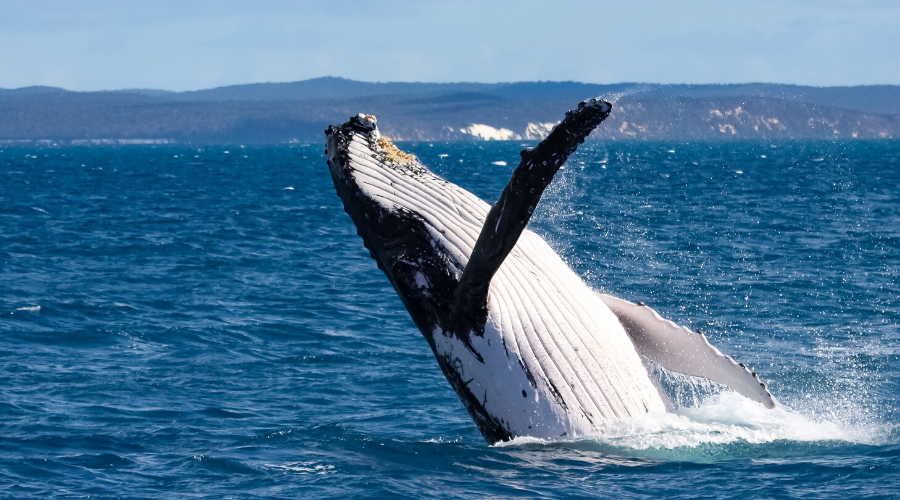Five Good News Stories From the Past 12 Months
It's been a tough 12 months. In 2019, the UK has had a lot of change — Brexit, a change of Prime Minister and then a general election. In winter, the UK suffered from severe flooding, and now, in spring, we are currently on lockdown due to Coronavirus (COVID-19).
However, there is hope in this dark time. In this blog, Billy looks at five good news stories from the past 12 months that you may have missed.
Hi, we are Happy
We are leading a movement to create happy, empowered and productive workplaces.
How can we help you and your people to find joy in at least 80% of your work?

It’s been a tough 12 months. Britain spent most of 2019 in a seemingly interminable tussle over Brexit. One Prime Minister made way for another, which sparked an election that further exposed the division at the heart of the whole mess.
Through winter we watched helplessly as the continent of Australia went up in flames. Several months of wildfires resulted in the deaths of more than a billion animals. In an ironic (but not at all amusing) contrast, Britain was battered by severe flooding at the same time, costing lives and causing more than £150m damage.
Then, well, we all know what happened next. We’re currently staring down the worst public health pandemic in 100 years. Life has already changed drastically, and the worst is yet to come.
But despite going from one cataclysm to another, we live in profoundly progressive times. Modern humans are capable of amazing things.
Here are five good news stories from the past 12 months.
1. Renewables now account for one-third of the world’s electricity capacity
In April 2019, the International Renewable Energy Agency (IRENA) reported that 171 gigawatts of renewable energy capacity was added globally in the preceding 12 months. 84% of this growth came from solar and wind energy, while hydropower has the largest overall share. This is big news – IRENA’s 2019 Renewable Capacity Statistics report indicated that renewables now account for one-third of global power capacity.
Contrary to what you might think, the fastest growth is coming from emerging and developing economies. Thanks to the embrace of renewable energy technologies across Asia, Oceania and Africa, two-thirds of the new power generation capacity added in 2018 was from renewables. More growth is required if countries around the world are to meet their Paris Climate Agreement pledges, but it’s heartening to know we’re on the right track.
2. London man the second person in the world to be cured of HIV
40-year-old London man Adam Castillejo became just the second person ever to be cleared of HIV in early 2019. Castillejo had been living with HIV – the virus that causes AIDS – since 2003. In 2012 he was diagnosed with blood cancer (Hodgkin lymphoma). Castillejo’s treatment was modelled on that of Timothy Brown, who became the first person cured of HIV in 2008.
Castillejo underwent a stem cell transplant over a period of several years, which not only addressed the cancer but also cleared him of HIV. The fact the treatment method was successful for a second time cleared up questions about whether Brown’s survival was a fluke.
3. Scotland the first country in the world to offer free period products to all
A historic vote took place in Scottish parliament in late February 2020. Scottish Labour Party MP Monica Lennon put forward a bill that would require the Scottish government to make period products available free of charge “for anyone who needs them.”
All parliamentary parties backed the bill, including the governing Scottish National Party (SNP) led by Nicola Sturgeon. Sturgeon had previously made it so period products were freely available in schools, colleges and universities across Scotland.
Before you pack your things and move north, England isn’t too far behind. In January the Department for Education acted on its plan to address period poverty by providing tampons, sanitary pads and other period products to state schools and colleges across England.
4. Humpback whale population blossoms, defying predicted extinction
The total number of humpback whales was reduced to approximately 450 in the first half of the 20th century. The untrammelled whaling industry was to blame. However, protections have been in place since scientists noticed the alarming decline, and restrictions on whaling grew particularly prohibitive in the 1980s.
A University of Washington study published in late 2019 revealed the number of humpbacks in the South Atlantic Ocean has risen back to approximately 25,000. This is truly amazing, especially given we’re so accustomed to stories of ecological disaster and animals on the brink of extinction.
The UW researchers speculate this figure is equal to the pre-whaling numbers. "Wildlife populations can recover from exploitation if proper management is applied," said UW researcher Alex Zerbini.
5. Take a virtual tour of the world’s most prestigious museums
Social distancing is not a silly government proposal. It's a critical requirement if we're to flatten the curve and prevent the health service from being overwhelmed. But there's really no shortage of engaging activities to partake in from the comfort of your home (provided you’ve got a decent internet connection).
At the top of the list is taking a virtual tour through the collections of more than 2000 of the world's most prestigious museums. This is thanks to Google’s Arts & Culture platform, which is accessible completely free of charge. The site lets you jump from Paris' Musee d’Orsay to New York's Museum of Modern Art and over to Japan’s largest art museum, the Tokyo National Museum, all while sitting under your duvet and eating Hobnobs.
Related Blogs
Why not sign up to our newsletter?
Sign up to our monthly newsletter, full of tips, tricks and news to help you to be happier and more productive at work.
Maintain resilience and wellbeing while working at home
We have a range of online training programmes to help you work at your best and maintain wellbeing while working from home.
Assertiveness focuses on the challenges of being assertive with colleagues online and communicating with those around you. Book now
We also host a female-only Assertiveness workshop, for learners who feel more comfortable learning in an all-female environment. Book now
In our one-day Wellbeing and Resilience workshop, you will learn how to identify your strengths in managing stress as well as tools and strategies that will help to enhance your wellbeing and resilience. Find out more
Why choose Happy?
- Award-winning learner-focused approach
- Small class sizes to give personal one-to-one support
- Two years of free support after your course
- Private group options available
- No quibble money-back guarantee on all courses

Billy Burgess
Billy has been writing blogs for Happy since 2017, covering mindfulness, stress management, confidence building and emotional intelligence as well as offering handy tips for Office 365 users. He's also an established arts, culture and lifestyle writer.
